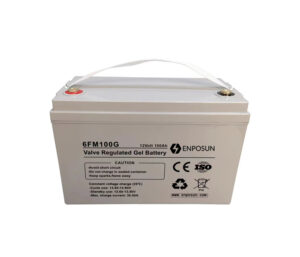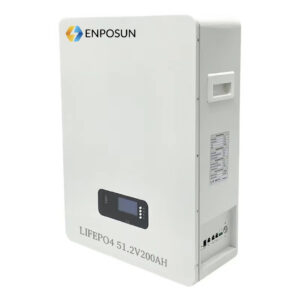Both lithium batteries and gel batteries have their advantages and disadvantages for solar system applications, so determining which one is “better” depends on specific requirements and priorities. Here’s a comparison of the two:
Lithium Batteries:
Advantages:
- Higher energy density: Lithium batteries typically have a higher energy density than gel batteries, meaning they can store more energy in a smaller and lighter package.
- Longer lifespan: Lithium batteries generally have a longer cycle life compared to gel batteries, with some lithium chemistries offering thousands of cycles.
- Faster charging: Lithium batteries can be charged more quickly than gel batteries, allowing for faster recharging from solar panels.
- Deeper depth of discharge: Lithium batteries can often be discharged to a higher percentage of their capacity without causing damage, providing more usable energy storage.
- Maintenance-free: Lithium batteries typically require less maintenance compared to gel batteries, which may need periodic equalization and topping up with distilled water.
Disadvantages:
- Higher initial cost: Lithium batteries tend to have a higher upfront cost compared to gel batteries, although their longer lifespan and better performance may offset this over time.
- Safety concerns: While lithium batteries are generally safe when used correctly, there have been incidents of thermal runaway and fire, albeit rare. Proper safety precautions and protection systems are essential.
- Compatibility issues: Some lithium batteries may require specific charging profiles and may not be compatible with all solar charge controllers without additional equipment or modifications.
Gel Batteries:
Advantages:
- Lower initial cost: Gel batteries typically have a lower upfront cost compared to lithium batteries, making them more accessible for some users.
- Good tolerance to deep discharges: Gel batteries can handle deep discharges without significant damage, although repeated deep discharges can shorten their lifespan.
- Maintenance-free: Gel batteries are sealed and maintenance-free, requiring no topping up with distilled water like flooded lead-acid batteries.
- Safety: Gel batteries are generally considered safer than lithium batteries, with a lower risk of thermal runaway and fire.
Disadvantages:
- Lower energy density: Gel batteries have lower energy density compared to lithium batteries, meaning they may require more physical space to store the same amount of energy.
- Shorter lifespan: Gel batteries typically have a shorter cycle life compared to lithium batteries, requiring replacement more frequently.
- Slower charging: Gel batteries charge more slowly than lithium batteries, which can extend the time required to recharge from solar panels.
In summary, lithium batteries offer higher performance, longer lifespan, and faster charging capabilities but come with a higher upfront cost and potential safety concerns. Gel batteries, on the other hand, are more affordable upfront, safer, and have simpler maintenance requirements but offer lower performance and shorter lifespan. The choice between the two depends on factors such as budget, performance requirements, space constraints, and safety considerations.


